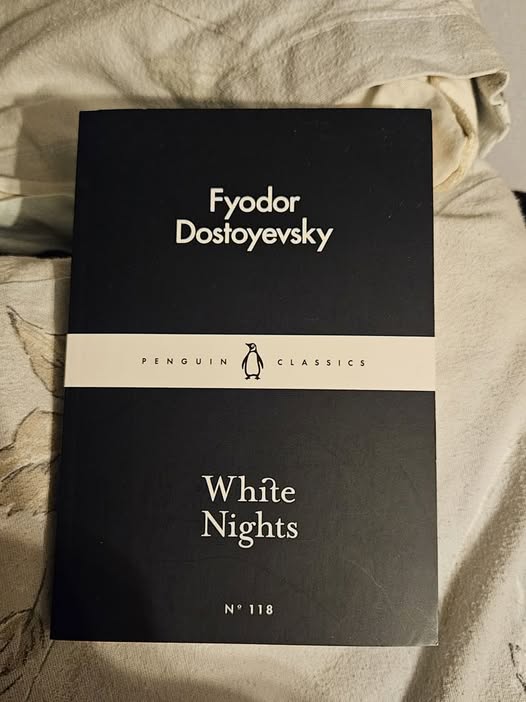Fyodor Dostoevsky’s White Nights (1848) unfolds as a delicate yet devastating study of urban isolation and romantic delusion, set against the surreal backdrop of St. Petersburg’s endless summer twilight. This early work – written when the author was just 26 – reveals a more vulnerable, lyrical Dostoevsky before he plunged into the psychological depths of his later novels. The nameless protagonist, a self-proclaimed “dreamer,” drifts through the city’s canals like a ghost of unfulfilled desires until he encounters Nastenka, a young woman waiting faithfully for her absent lover. Their four-night dialogue forms a poignant dance between hope and heartbreak, as the dreamer’s torrential confessions of imagined loves collide with Nastenka’s very real emotional turmoil.
Dostoevsky crafts a masterful contrast between these two forms of loneliness: the woman anchored to a concrete promise of love, and the man intoxicated by his own fantasies. The dreamer’s monologues – at once embarrassingly earnest and profoundly moving – expose the addictive nature of self-constructed romance, while Nastenka’s tremulous vulnerability reveals how easily hope can curdle into desperation. When reality inevitably intrudes with the return of Nastenka’s lover, the brief connection shatters, leaving the dreamer to console himself with the memory of what he calls his “moment of happiness” – a phrase that captures the novel’s tragicomic essence.
Though slighter in scope than Dostoevsky’s major novels, White Nights pulses with the same psychological insight and existential questioning. The white nights themselves become a metaphor for the dreamer’s suspended state – neither day nor night, neither fully connected nor completely alone. What begins as a charming romantic interlude gradually reveals its darker undertones, suggesting how isolation warps perception and how easily people become addicted to their own suffering. The ending, simultaneously heartbreaking and strangely uplifting, offers no easy resolutions, only the quiet acknowledgment that some souls are destined to love their loneliness more than any earthly companion.
In just over a hundred pages, Dostoevsky creates a miniature masterpiece that captures the universal human struggle between the safety of dreams and the terrifying risk of real connection. The dreamer’s final words – “My God, a whole moment of happiness! Is that too little for the whole of a man’s life?” – linger like the Petersburg dawn, blurring the line between wisdom and self-deception. This overlooked gem showcases Dostoevsky’s genius for revealing the extraordinary depths of ordinary loneliness.


